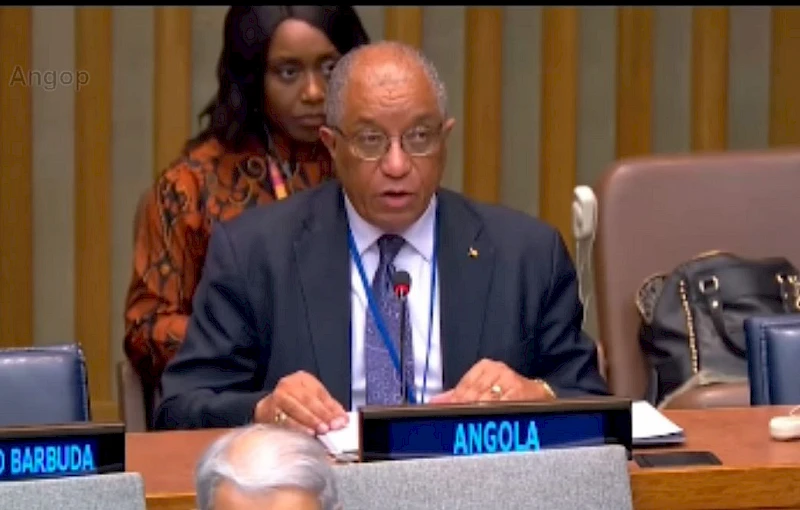Luanda - The Southern African Development Community (SADC) expressed, Thursday, deeply concerned about the extraterritorial nature of unilateral coercive economic sanctions and the consequences that infringe on Zimbabwe's sovereignty and violate international legal principles.
SADC's position was expressed by Angola's permanent representative to the United Nations (UN), in New York, ambassador Francisco José da Cruz, when speaking on behalf of the Group, at the plenary meeting of the General Assembly on the Elimination of Unilateral Coercive Economic Measures Extraterritorialities as a Means of Political Coercion.
In his statement, the Angolan diplomat highlighted that SADC's concern is based on the fact that unilateral extraterritorial coercive economic measures disproportionately affect the most vulnerable segments of society, exacerbating poverty and inequality, and causing socioeconomic instability.
“The reality is that the sanctions imposed against Zimbabwe have caused indiscriminate and significant damage, not only to the economy of this country, but also to the economies of our region”, he reinforced.
Furthermore, he continued, the measures hinder regional and international cooperation, disrupt trade and investment flows and undermine efforts to achieve sustainable development objectives.
Ambassador Francisco José da Cruz highlighted that the measures have significant and long-term negative economic, social, political and institutional impacts on the targeted countries, as economic difficulties and reduced opportunities lead to brain drain.
“Qualified professionals emigrate in search of better opportunities elsewhere, thus hampering the ability of targeted countries to recover,” he highlighted.
During his intervention, the ambassador also noted that, at a time when the SADC region is facing drought induced by El Nino, the sanctions imposed on Zimbabwe create an alarming double threat to the livelihoods and survival of these people.
For the permanent representative of Angola, this situation goes against the global collective commitment to “leave no one behind”, which is why he called for the urgent removal of all sanctions imposed on Zimbabwe, for the good of the country, its people, the region and the world in general.
He stated that SADC underlines the inherent sovereignty of all nations and the principles of non-interference and mutual respect enshrined in the United Nations Charter.
In this context, Francisco José da Cruz recalled that unilateral extraterritorial coercive economic measures violate these fundamental principles, imposing economic difficulties on sovereign States, undermining their ability to exercise independent decision-making and impeding their development efforts.
He called on the General Assembly to take concrete measures to address the adverse effects of these measures and to support the efforts of affected countries to achieve inclusive and sustainable development.
He reaffirmed SADC's commitment to solidarity, cooperation and mutual respect among nations, considering the dialogue session as a first step towards addressing any concerns in a peaceful and amicable manner. SC/DOJ
































